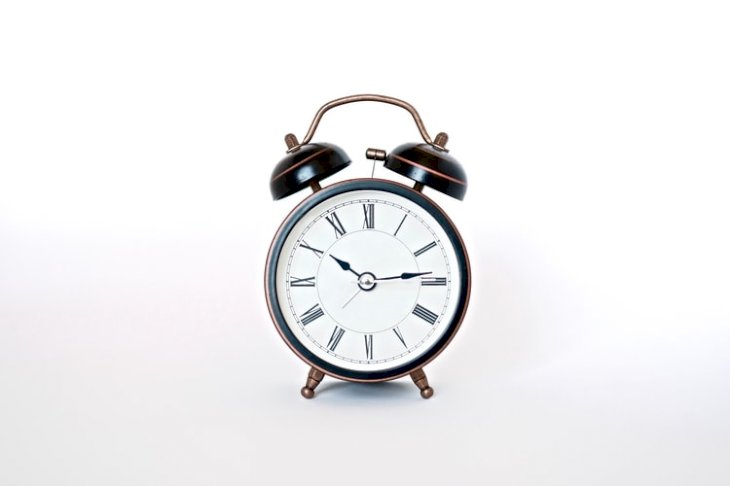
5 Rules To Follow To Becoming A Morning Person
The world is divided into two sets of people: those who get up early in the morning and those who go to bed late at night. Most people know which of the two categories they belong to. This is because each of us has an internal clock known as our circadian rhythm, which naturally determines when we feel most awake or feel most tired.
While there is absolutely nothing wrong with being a night owl, several studies have shown that waking up early in the morning has far more benefits, including being more productive and having less stress.
Is it then possible to change one's habits and become an early riser? Yes, but it takes time and effort because it is not a change that happens overnight.
1. Go To Bed Early

Photo by Kinga Cichewicz on Unsplash
For you to wake up early, you first have to go to bed early. But how do you know when to go to bed if you are used to staying up late? To have a good night's rest, you have to have slept for at least seven to eight hours.
Since it's not easy to drastically change your habits overnight, try to go to bed fifteen or twenty minutes earlier than usual for a few days in a row. Then, continue with this routine until you arrive at an ideal bedtime.
2. Find A Bedtime Routine That Suits You

Photo by insung yoon on Unsplash
Even if you have decided to go to bed, falling asleep is not enough to turn off the switch. However, having a quiet routine before bed will help you relax and fall asleep faster.
Dim the lights and turn off all electronic devices or find something relaxing to do, like read a book or listen to a podcast. Then, prepare your mind for bed by using meditation, deep breathing, or aromatherapy. Developing a pleasant and relaxing bedtime routine encourages an early start of the sleep cycle.
3. Let The Light Wake You Up

Photo by bruce mars on Unsplash
Our body has an internal clock that regulates circadian rhythms. That clock is very sensitive to changes in light. For example, our body releases melatonin, the sleep-inducing hormone, in response to the sunset lights. The light of dawn, on the contrary, stimulates an awakening response in our body.
You can use this light sensitivity to your advantage by limiting your exposure to devices that emit blue light, such as phones and computers. However, in the morning, let the sunlight wake you up as this helps you feel more alert and changes your circadian rhythm. Natural light is the best, so - as soon as you wake up - go out or open your window.
4. Exercise

Photo by kike vega on Unsplash
If you like to stay up late, the idea of an early morning run might seem like a real punishment. However, exercising in the morning will give you the energy to start the day if you can get used to it. The energy that comes from exercise is also able to improve mood.
Researchers found that as little as twenty minutes of moderate-intensity aerobic training with an average heart rate of about 112 beats per minute can improve your mood for up to twelve hours after exercising. Therefore, morning exercise is synonymous with happiness all day long.
5. Opt For Protein Breakfast

Photo by Sam Moqadam on Unsplash
A 2020 research on diet patterns and chronotype revealed night owls, on the whole, tend to have less healthy eating habits: they skip breakfast, eat fewer vegetables, and consume more caffeine and alcohol. But don't let eating habits undermine your progress. First of all, try to eat early in the evening, avoid heavy foods, and fill up on vegetables.
Also, avoid after-dinner snacks. In the morning, instead, have a breakfast rich in protein but low in carbohydrates. Protein naturally increases dopamine levels, which can regulate pleasure, but it also regulates motivation, causing people to persevere in their goals.